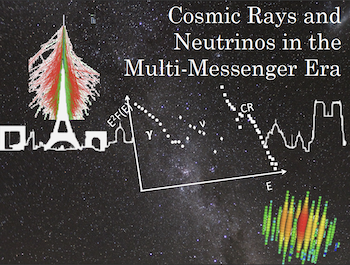Description
The detection of a common source of gravitational waves (GW) and neutrinos would greatly help in the understanding of the dynamic of such astrophysical objects. It would also permit more prompt EM follow-up, as the coincidence surely improves the pointing to the source. Since 2015, LIGO/Virgo collaboration (LVC) is providing GW alerts, both in realtime (fully public since April 2019 and the beginning of O3 run) and through published catalog, as the latest GWTC-2 published in October 2020.
The Super-Kamiokande detector is a 50-kton water tank instrumented with $\sim$13k photomultipliers and running since 1996, in the Mozumi mine (Japan). It is sensitive to neutrinos with energies ranging from $4.5$ MeV to several TeV. For the region above 100 MeV, three subsamples are defined: fully-contained events, partially-contained events and upgoing muons, that are sensitive to various neutrino flavours and energy ranges.
These samples can be used to search for neutrino events in time and spatial coincidence with various external triggers. A new framework has been developed for the follow-up of gravitational wave triggers provided by LVC. Neutrinos are searched for in a 1000 seconds time window centered on alert time.
Such observation can then be used to constrain the neutrino emission from the GW source. Comparing the localisation of the GW with the reconstructed direction of detected SK event allows extracting significance of the potential signal, by comparing the observation to the expected background, taking into account the contributions from the different SK samples.
Even if the observation is not significant, one can compute upper limits on the incoming neutrino flux, for the different flavours to which SK is sensitive. Using the distance estimation provided by LVC, this could be converted to a limit on the total energy emitted in neutrino by the source (assuming isotropic emission).
The results using LIGO/Virgo O3 realtime alerts will be presented, as well as the plans for the study of the full GWTC-2 catalog.
| Related session | Multi-messenger |
|---|
